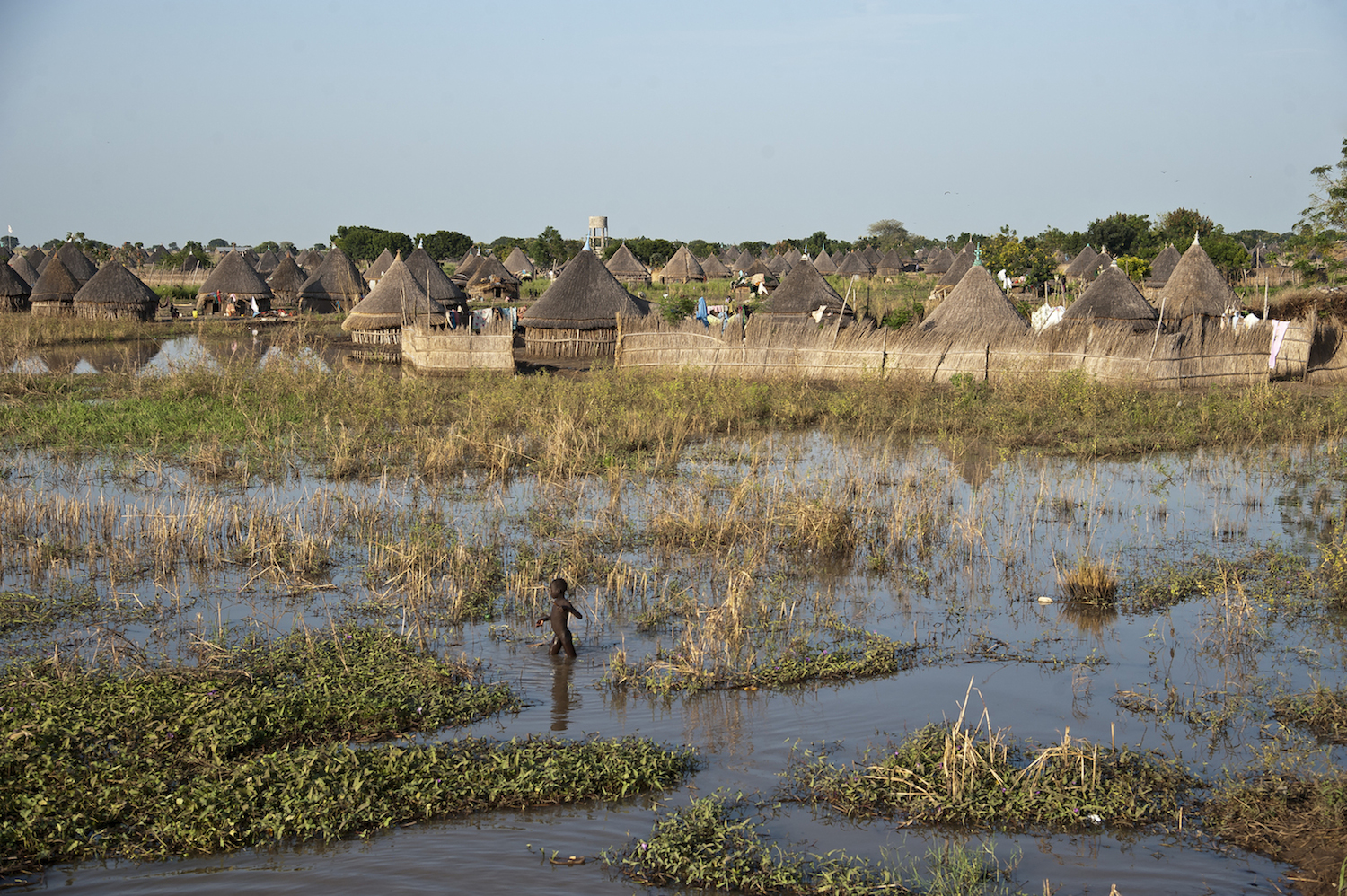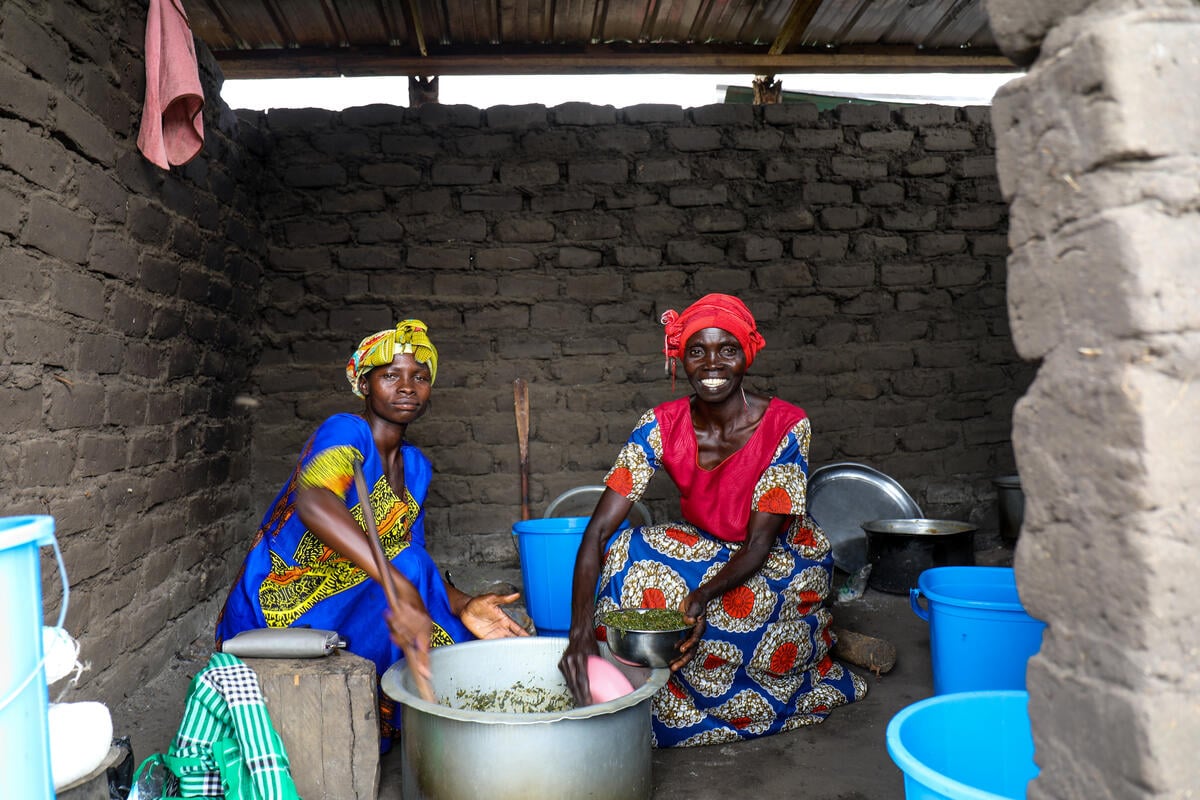An Uncle Throws a Lifeline

An Uncle Throws a Lifeline
Biel Jock steps out of the bus and looks around at Ethiopia's Pugnido refugee camp. It has been a long journey for the 27-year-old from Nyirol County, South Sudan, but his first question is not about food or shelter. Instead, it is whether there is a secondary school nearby. "I want to go back to school," he says.
More education, Biel reasons, will help him provide for his growing family. Not only is his wife five months pregnant, but the couple are also caring for five young nephews orphaned by illness and war. Three of the boys lost their parents to disease before the civil war broke out last December. Two more – including Duol, 14 – saw their mother and father killed a few months ago as they fled to safety.
The unspeakable horrors that the family witnessed back in August are still fresh in their minds today. "My parents and my wife's parents were fleeing together," Biel recalls. "They were killed."
Biel and his family spent 16 days in the jungle, eating wild fruits and drinking any water they could find.
His wife, Nyibol, 18, breaks into tears at the memory. "We never thought the war which started in the capital, Juba, among soldiers, was going to target civilians on tribal lines. We were like dead people alive," she says, weeping.
As longtime friends and neighbours suddenly became enemies, Biel and his family spent 16 days in the jungle, eating wild fruits and drinking any water they could find. The family of seven crossed into Ethiopia almost empty-handed, eventually ending up at the Matar way station.
The family were due to be relocated to the Nip Nip refugee camp, but after exceptionally heavy seasonal rains, the nearby Baro River burst its banks and the camp was completely flooded.
The unrelenting rain also hit the transit centre, where Biel and his family had sought shelter. "It was a very tough time for us," he recalls. "Almost the whole place became flooded. We were lucky to get help from a local man who allowed us to stay in his tukul" – a traditional hut.
"We do not want to be anywhere near people who killed our loved ones and made us become refugees," he says.
In an urgent effort to relocate the refugees, the Government of Ethiopia, UNHCR and its partners identified a site on higher ground in Dimma and shared what they hoped was good news to the stranded refugees. But the refugees had no interest in relocating to an area where fighters were just 70 kilometres away across the border in South Sudan.
"Most of us who fled the conflict into Ethiopia are from the Nuer ethnic group," Biel explains. "The conflict in South Sudan had taken a tribal dimension so we do not want to be anywhere near people who killed our loved ones and made us become refugees."
Although they were assured of security and safety, the refugees were too afraid to move, leaving UNHCR in a quandary. "Providing humanitarian services in a flood-affected area was a herculean task," says Hassan Dabar, a senior field coordinator for UNHCR. "The camp and almost all offices were flooded. We almost did not know what to do next when the refugees refused to relocate to Dimma."
Eventually, the refugees agreed to move to Pugnido camp, where Biel is hoping to continue his education and pursue his dream of becoming a doctor. In South Sudan, he was a tenth grader at Aroboir School in Nyirol. "Today I am a refugee, but I want to go to school with my nephews and acquire education so we can beat poverty and also have a better quality of life."
The father-to-be wishes that people would realize that regardless of one's tribe, the South Sudanese are one people. "If I become a doctor, will I only treat sick people from my Nuer tribe?" he asks.
"Today I am a refugee," he says, "but I want to go to school with my nephews and acquire education so we can beat poverty and also have a better quality of life."
His wife, who has completed fifth grade, also plans to go back to school. "When I give birth and the child is strong enough," she says, "I will also join my husband in school."
Among other services, UNHCR and partners are supporting educational activities for refugees in the Pugnido area, where some 45,000 South Sudanese refugees – most of whom have been living in the area for over 20 years – are attending schools. Such opportunities are sure to bring smiles back to the faces of Biel and his family as they begin to settle down.

















